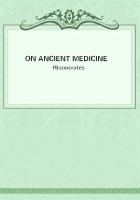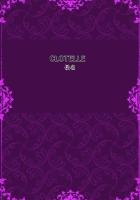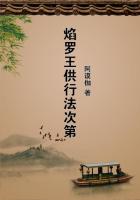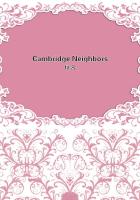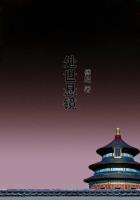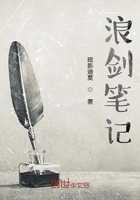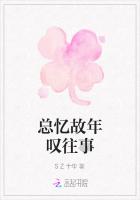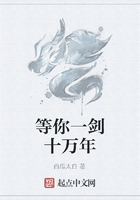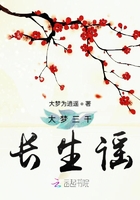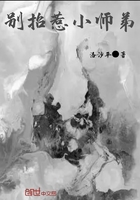Everything depends on habit. Old people can do, of course, more or less well, what they have been doing all their lives; but try to teach them any new tricks, and the truth of the old adage will very soon show itself. Mr. Henry Hastings had done nothing but hunt all his days, and his record would seem to have been a good deal like that of Philippus Zaehdarm in that untranslatable epitaph which may be found in "Sartor Resartus." Judged by its products, it was a very short life of a hundred useless twelve months.
It is something to have climbed the white summit, the Mont Blanc of fourscore. A small number only of mankind ever see their eightieth anniversary. I might go to the statistical tables of the annuity and life insurance offices for extended and exact information, but I prefer to take the facts which have impressed themselves upon me in my own career.
The class of 1829 at Harvard College, of which I am a member, graduated, according to the triennial, fifty-nine in number. It is sixty years, then, since that time; and as they were, on an average, about twenty years old, those who survive must have reached fourscore years. Of the fifty-nine graduates ten only are living, or were at the last accounts; one in six, very nearly. In the first ten years after graduation, our third decade, when we were between twenty and thirty years old, we lost three members,--about one in twenty; between the ages of thirty and forty, eight died,--one in seven of those the decade began with; from forty to fifty, only two,--or one in twenty-four; from fifty to sixty, eight,--or one in six; from sixty to seventy, fifteen,--or two out of every five; from seventy to eighty, twelve,--or one in two. The greatly increased mortality which began with our seventh decade went on steadily increasing. At sixty we come "within range of the rifle-pits," to borrow an expression from my friend Weir Mitchell.
Our eminent classmate, the late Professor Benjamin Peirce, showed by numerical comparison that the men of superior ability outlasted the average of their fellow-graduates. He himself lived a little beyond his threescore and ten years. James Freeman Clarke almost reached the age of eighty. The eighth decade brought the fatal year for Benjamin Robbins Curtis, the great lawyer, who was one of the judges of the Supreme Court of the United States; for the very able chief justice of Massachusetts, George Tyler Bigelow; and for that famous wit and electric centre of social life, George T. Davis. At the last annual dinner every effort was made to bring all the survivors of the class together. Six of the ten living members were there, six old men in the place of the thirty or forty classmates who surrounded the long, oval table in 1859, when I asked, "Has there any old fellow got mixed with the boys? "--11 boys" whose tongues were as the vibrating leaves of the forest; whose talk was like the voice of many waters; whose laugh was as the breaking of mighty waves upon the seashore.
Among the six at our late dinner was our first scholar, the thorough-bred and accomplished engineer who held the city of Lawrence in his brain before it spread itself out along the banks of the Merrimac.
There, too, was the poet whose National Hymn, "My Country, 't is of thee," is known to more millions, and dearer to many of them, than all the other songs written since the Psalms of David. Four of our six were clergymen; the engineer and the present writer completed the list. Were we melancholy? Did we talk of graveyards and epitaphs?
No,--we remembered our dead tenderly, serenely, feeling deeply what we had lost in those who but a little while ago were with us. How could we forget James Freeman Clarke, that man of noble thought and vigorous action, who pervaded this community with his spirit, and was felt through all its channels as are the light and the strength that radiate through the wires which stretch above us? It was a pride and a happiness to have such classmates as he was to remember. We were not the moping, complaining graybeards that many might suppose we must have been. We had been favored with the blessing of long life.
We had seen the drama well into its fifth act. The sun still warmed us, the air was still grateful and life-giving. But there was another underlying source of our cheerful equanimity, which we could not conceal from ourselves if we had wished to do it. Nature's kindly anodyne is telling upon us more and more with every year. Our old doctors used to give an opiate which they called "the black drop." It was stronger than laudanum, and, in fact, a dangerously powerful narcotic. Something like this is that potent drug in Nature's pharmacopoeia which she reserves for the time of need,--the later stages of life. She commonly begins administering it at about the time of the "grand climacteric," the ninth septennial period, the sixty-third year. More and more freely she gives it, as the years go on, to her grey-haired children, until, if they last long enough, every faculty is benumbed, and they drop off quietly into sleep under its benign influence.
Do you say that old age is unfeeling? It has not vital energy enough to supply the waste of the more exhausting emotions. Old Men's Tears, which furnished the mournful title to Joshua Scottow's Lamentations, do not suggest the deepest grief conceivable. A little breath of wind brings down the raindrops which have gathered on the leaves of the tremulous poplars. A very slight suggestion brings the tears from Marlborough's eyes, but they are soon over, and he is smiling again as an allusion carries him back to the days of Blenheim and Malplaquet. Envy not the old man the tranquillity of his existence, nor yet blame him if it sometimes looks like apathy.
Time, the inexorable, does not threaten him with the scythe so often as with the sand-bag. He does not cut, but he stuns and stupefies.
One's fellow-mortals can afford to be as considerate and tender with him as Time and Nature.

